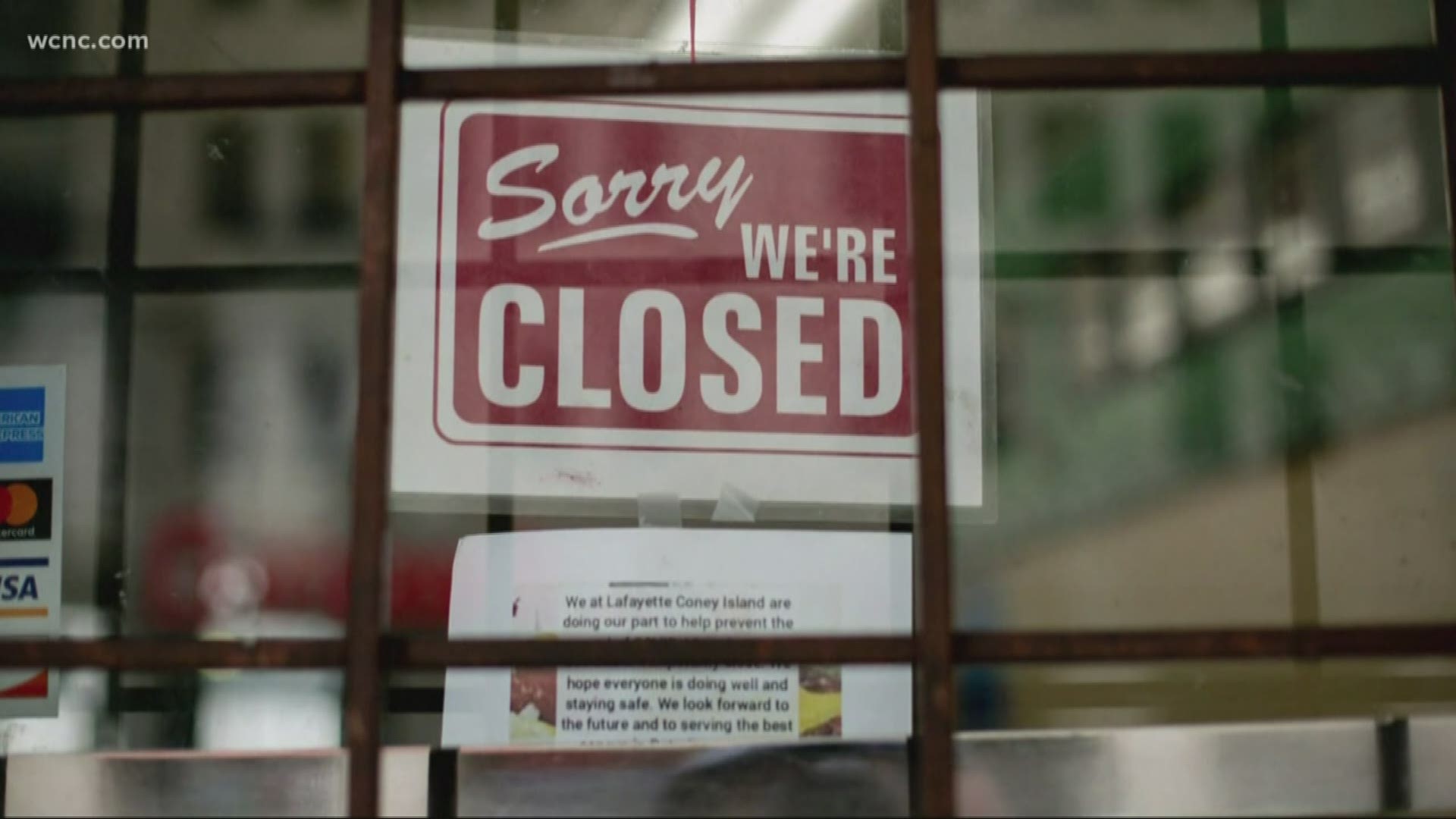CHARLOTTE, N.C. — On March 27, the President signed into law the Coronavirus Aid, Relief, and Economic Security Act or CARES Act, which contains $376 billion in relief for American workers and small businesses.
Federal lawmakers then tasked banks with helping to dole it out in the form of loans. Those include:
- The paycheck protection program, which provides loan forgiveness for retaining employees by temporarily expanding the traditional SBA 7(a) loan program.
- And EIDL loan advance, which will provide up to $10,000 of economic relief to businesses that are currently experiencing temporary difficulties.
- And an SBA Express Bridge Loan, which enables small businesses who currently have a business relationship with an SBA Express Lender to access up to $25,000 quickly.
Determining which loan program is best for your business, however, can be a complex decision, as each loan program has different conditions and payback obligations.
Experts are also advising small business owners to act fast to have the best chance of getting financial assistance.
So what’s the process for applying and with whom do you apply?
To help answer those questions, the Pineville NC Chamber of Commerce is hosting a free online video webinar titled, “Which SBA Loan Type Is Best For Your Business?"
“So we’re getting experts together to share with businesses the trade-offs of these programs,” said John Holobinko, President & CEO.
“For example, the SBA’s PPP (Paycheck Protection Program) is only designed as an 8-week bailout," Holobinko said. "It requires that 75% of the money is used to pay Payroll and that you do not reduce employee income or lay anyone off. If you are unable to pay it back, it may bankrupt your business later down the line. In contrast, the EDIL (Economic Injury Disaster Loan) is a quick access to $10,000 with access to more money as needed. So, a business with EDIL can furlough an employee, but use funds to pay for that employee’s health insurance. This is one example of the complexity of the SBA program."
After opening their portal for loan applications, Bank of America says it quickly received roughly 177,000 applications, totaling $32.6 billion in financing.
Sunday, Wells Fargo announced they’ve already received so many requests, they’re no longer accepting applications for their PPP program.
“And to me, that was just a little disappointing,” said Joshua Jones, who owns and Cirrus Salon in Charlotte with his wife.
Jones says since March the salon has lost 95-percent of its revenue and is now relying on hair product to-go orders.
He’s now one of hundreds of thousands of small business owners, hoping a small business loan will enable him to survive and to continue to pay his four employees. After being denied an application by Bank of America for not being a current loan holder, Jones says he applied with a smaller lender.
“We have been able to finally file but haven’t heard anything back from that kind of stuff yet,” he said.
Jones says he wants all salon owners and local small businesses to know these relief options are out there, fearing the Charlotte community we know today, might not exist the same way once life returns.
Holobinko says he’ll be standing by to help anyone with questions at the upcoming video webinar. The webinar is Wednesday, April 8 beginning at 7:30 a.m.
Any business can enroll in the webinar for free from the EVENT page of the Chamber website, www.pinevillencchamber.com.
MORE ON WCNC CHARLOTTE:
- Boeing to shut down in South Carolina until further notice
- Her senior prom was Friday night. She dressed up anyway and joined a video conference with her friends
- 'They left my groceries on the side of the road' | North Carolina mom says Instacart delivery never came
- Non-profit workers seen fundraising outside Charlotte grocery store despite stay at home order
- TIPS: How to make sure your homemade mask is effective

